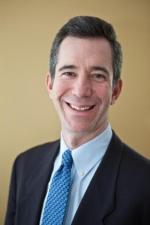Jeffery AronsJeffery Arons is a native of New Haven area. and a graduate of Hopkins School, class of 1979. He attended Yale (class of 1983, Saybrook College) as an American Studies major, with concentration in American Art History. He also played varsity football. After leaving Yale, he went to Case Western Reserve University School of Medicine and graduated in 1987. He then worked at University of Texas Health Science Center at Houston, General Surgery Residency from 1987-1992. Following this, Jeff returned to Case Western Reserve University Hospitals where he completed his Plastic Surgery Residency from 1992-1994. He then worked at SUNY at Syracuse on a hand surgery fellowship before becoming a clinical Instructor at the Yale Medical School Section of Plastic Surgery. Jeff is a board certified Plastic and Hand Surgeon currently practicing in New Haven/Woodbridge. He is best reached via email or phone: 203-228-5123. |
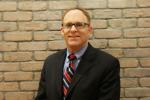 |
|
Peter AronsonPeter Aronson is a professor of medicine (nephrology) and physiology in the medical school. He is a physician-scientist who has been involved in research training of medical students and postdoctoral fellows. Dr. Aronson received his undergraduate education at the University of Rochester and his medical education at New York University. He was an internal medicine resident at the University of North Carolina and a research fellow at the National Institutes of Health before coming to Yale as a renal fellow in 1974. He was Chief of the Section of Nephrology at Yale from 1987-2002. Dr. Aronson has published articles and book chapters on the mechanisms regulating sodium, acid-base, and oxalate excretion by the kidney, particularly as related to the formation of kidney stones. He has received a number of awards for his research work, including the Young Investigator Award of the American Society of Nephrology and American Heart Association in 1985, the Homer W. Smith Award of the ASN in 1994, election to the American Academy of Arts and Sciences in 2009, and the Robert W. Berliner Award of the American Physiological Society in 2016. He served as President of the American Society of Nephrology in 2008. Dr. Aronson actively participates in the teaching of undergraduate, graduate and medical students, as well as residents and fellows. He was a co-recipient of the Charles W. Bohmfalk Teaching Prize in the Basic Sciences in 2005. Dr. Aronson is an Associate Director of the Yale M.D.-Ph.D. Program. He would be delighted to meet with students who have potential interest in careers in academic medicine and/or biomedical research. Please contact him via email. |
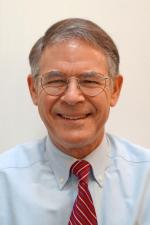 |
|
Beatrice BartlettBeatrice Bartlett received her Ph.D. from Yale in 1980. In addition to many articles on the Qing communications system, record-keeping, archives, and official historical writing, she has published Monarchs and Ministers: The Grand Council in Mid-Ch’ing China, 1723-1820 (1991). Bartlett teaches a lecture course on twentieth-century Chinese history and seminars on Taiwan history and Chinese historiography. In the past she has also taught courses on the Overseas Chinese, Chinese law, and the history of Hong Kong, as well as the lecture-survey of modern China (1600-present). She offers two graduate research courses for the modern China field: one on the research bibliography of Qing and early twentieth-century history, and one on communications systems, reading Qing documents, and using official Qing sources. She also runs Yale’s China Workshop, a lunchtime forum for speakers and discussions. She is best reached via email. |
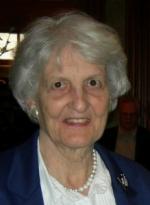 |
|
Richard BribiescasRichard G. Bribiescas is Deputy Provost for Faculty Development and Diversity and Professor of Anthropology. He also holds a secondary appointment in the Department of Ecology and Evolutionary Biology. Prior to this position, he served as chair of the Department of Anthropology from 2010 until 2014. His primary responsibilities are to oversee university wide faculty development, including working with deans and others to identify, recruit, and promote outstanding faculty. He also provides support and advice to search, tenure, and appointments processes as well as being responsible for developing and deploying the university-wide Faculty Excellence and Diversity Initiative. As a biological anthropologist and a primary investigator in the Yale Reproductive Ecology Laboratory, he conducts laboratory and field based research in human and comparative evolutionary biology in order gain insights into the evolution of our species and how it might inform our understanding of contemporary health and disease. He has conducted field research among the Ache people of Paraguay as well as populations in Venezuela, Japan, Ecuador, and the United States as well as with various species of non-human primates. He is presently a co-investigator with the Shuar Health and Life History Project in Ecuador. Deputy Provost Bribiescas has authored or co-authored numerous scientific articles in peer reviewed journals and is the author of two books, Men: Evolutionary and Life History (2006, Harvard University Press) and How Men Age: What Evolution Reveals about Male Health and Mortality (2015, Princeton University Press). He is an Associate Editor for the journal Evolution, Medicine, and Public Health and serves on the editorial boards of the Annual Review of Anthropology as well as the American Journal of Human Biology. He received his B.A. in Anthropology and Psychology (double major) from the University of California, Los Angeles and an A.M and Ph.D. in Anthropology from Harvard University. He joined the Yale faculty in 1998. He is best reached via email. |
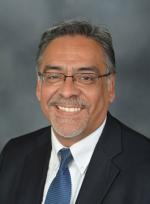 |
|
Dr. Alita R. BurmeisterI’m a scientist at Yale working out how bacteria evolve and how viruses evolve to kill those bacteria. I have a Ph.D. in Microbiology and Molecular Genetics & Ecology, Evolutionary Biology, and Behavior, Research experience in in industry (microbiology of cheese) and academia. I am looking for students to do mentored research in microbiology & evolution, especially first- and second- years.I recently discovered that Saybrook has a wine group but not a cheese group?! We need to change that. I propose cheese tasting parties where we do or don’t talk about cheese bacteria. Send me an email with a bit about yourself if you are interested in meeting for a Saybrook lunch and talking about any of the above. |
.jpg) |
|
Deborah R CoenDeborah R. Coen is a historian of science whose research focuses on the modern physical and environmental sciences and on central European intellectual and cultural history. She earned an A.B. in Physics from Harvard, an M.Phil. in History and Philosophy of Science from Cambridge, and a Ph.D. in History of Science from Harvard, where she was also a Junior Fellow of the Society of Fellows. Before coming to Yale, she taught for ten years in the History Department at Barnard College and was Director of Research Clusters for the Columbia Center for Science and Society. At Yale she is also a member of the steering committee of the Environmental Humanities Initiative. One of the questions driving Professor Coen’s research is how scientists cope with uncertainty. Her first book, Vienna in the Age of Uncertainty: Science, Liberalism, and Private Life (2007), centered on an extraordinary scientific dynasty, the Exner-Frisch family. Contrary to typical accounts of fin-de-siècle central Europe, the Exners reveal a strain of Austrian liberalism that was (literally) at home with modernist subjectivity and uncertainty. Vienna in the Age of Uncertainty won the Susan Abrams Prize from the University of Chicago Press, the Barbara Jelavich Prize from the Association for Slavic, East European, and Eurasian Studies, and the Austrian Cultural Forum Book Prize. Professor Coen has pursued her interest in the history of private life in articles such as “The Common World: Histories of Science and Domestic Intimacy,” Modern Intellectual History 11 (2014): 417-438. Professor Coen’s recent research has explored the production of environmental knowledge. In 2013 she published The Earthquake Observers: Disaster Science from Lisbon to Richter, which examines seismology’s history as a form of “citizen science.” In the nineteenth century, standing networks of seismic observers transformed earthquakes into natural experiments at the nexus of human behavior and planetary physics. The Earthquake Observers was a finalist for the Turku Book Prize from the European Society for Environmental History; click here to read a review in The Times Higher Education or The Los Angeles Review of Books. Her latest book, to appear in 2018, is Climate in Motion: Science, Empire, and the Problem of Scale, the first study of the science of climate dynamics before the computer age. Professor Coen argues that essential elements of the modern understanding of climate arose as a means of thinking across scales of space and time, in a state—the multinational Habsburg Monarchy, a bricolage of medieval kingdoms and modern laws—where such thinking was a political imperative. Linking Habsburg climatology to the political and artistic experiments of late imperial Austria, Climate in Motion grounds the seemingly esoteric science of the atmosphere in the everyday experiences of an earlier era of globalization. Small portions of this research have appeared in The Journal of Modern History, Osiris, The Journal for the History of Ideas, and The Avery Review. In 2018-19, thanks to a Mellon New Directions Fellowship, Professor Coen will be taking a leave from teaching in order to study the physical and social science of climate change. Her goal is to acquire the knowledge and skills necessary to bring history to bear on some of the implicitly historical questions that anthropogenic climate change raises: questions about environmental and social justice, about the rights of future generations, and about the relationship between scientific expertise and traditional forms of knowledge. Reach her via email. |
 |
|
Robert CrabtreeAt Yale since 1977, Bob Crabtree is now Whitehead Professor. In early work, he reversed homogeneous catalytic alkene hydrogenation to bring about alkane dehydrogenation. The so-called ‘Crabtree catalyst’ has proved useful for certain challenging cases and has therefore seen broad use. This was followed by work on complexation of molecular hydrogen to metals and finding a new type of hydrogen bonding that he called dihydrogen bonding. Recently, in collaboration with Gary Brudvig, he developed water oxidation and C-H bond conversion to C-OH with iridium catalysts in connection with the problem of green catalysis and alternative energy production. He is currently teaching Chem 252 Inorganic Chemistry and Chem 452/552 Organometallic Chemistry. He has been American Chemical Society (ACS) and Royal Society of Chemistry (RSC) organometallic chemistry awardee, Baylor Medallist, Dow, Williams and Mond lecturer, Centenary awardee, has chaired the ACS Inorganic Division and is the author of an organometallic textbook now in its 6th edition. He is a Fellow of the ACS, RSC, and the American Academy as well as a member of the National Academy of Sciences and a Fellow of the Royal Society. Contact him via email. |
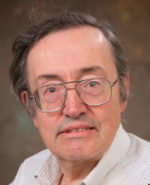 |
|
Kimberly DavisDr. Davis is Professor of Surgery and Vice Chairman for Clinical Affairs at the Yale School of Medicine Department of Surgery. She is the Chief of the Division of General Surgery, Trauma and Surgical Critical Care at Yale, as well as the Trauma Medical Director for Yale New Haven Hospital, an American College of Surgeons verified and Connecticut Department of Health designated Level One Trauma Center for both adult and pediatric patients. Dr. Davis also serves as the Surgical Director of Quality and Performance Improvement for Yale-New Haven Hospital and formerly as the NSQIP Surgeon Champion. After earning a BS in Molecular Biophysics and Biochemistry at Yale, she attended Albany Medical College and received her surgical training from the Brown University/Rhode Island Hospital program. Following a fellowship in trauma and surgical critical care at the University of Tennessee - Memphis, she spent eight years on the faculty at Loyola University Medical Center in Illinois prior to returning to Yale in 2006. Dr. Davis received her MBA from the Yale School of Management Leadership in Healthcare program in 2012. She serves on the Board of Governors, Committee on Trauma as the Chief of Region I and is President of the Connecticut chapter for the American College of Surgeons. She is the immediate past chairman of the Acute Care Surgery committee of the American Association for the Surgery of Trauma, and Past President of the Eastern Association for the Surgery of Trauma. She has held leadership positions in several other regional and national organizations. She has published extensively in medical literature, with over 150 peer reviewed publications. She is an Associate Editor of Trauma Surgery and Acute Care Open, serves on the editorial boards of the Journal of Trauma and Acute Care Surgery, the Journal of Burn Care and Rehabilitation and Current Trauma Reports, and is an ad hoc reviewer for 10 other critical care and surgical journals. She lives in Milford CT. To contact her, please use email. |
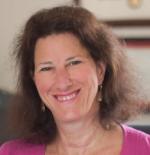 |
|
Ronald EbrechtSeason after season Ronald Ebrecht appears to critical acclaim in major music centers across the US, Europe, and Asia as Wesleyan University’s organist. During his more than thirty year tenure at Wesleyan University, Ebrecht has taught in several different areas of the Music Department, including history, theory, performance, and composition. He has directed conferences: “Responses: the 21st Century replies to the 20th,” “A Century of American Keyboard Music,” “Hearts Pounding and Skins Taut;” annual events “Spring Organ Fling,” computer-generated concerts including “A Musical Singularity,” and “The Slot.” The annual “Organ Romp” draws hundreds of students to a concert the seamlessly mixes classical, rock, and contemporary composition. His world-wide commission series “Four Corners” seeks new compositions from composers who do not regularly write for the organ. In addition to his teaching at Wesleyan, Ebrecht is frequently invited to perform as guest artist and teacher at other institutions including Yale University. |
 |
|
Richard FeldmanRichard C. Feldman is a principal of the New Haven firm of Evans, Feldman & Associates L.L.C. in New Haven where he practices business and commercial law, including transactions, documentation and litigation. His practice also includes litigation on behalf of national banks and leasing companies in Federal, State and Bankruptcy Courts. He is past chairman of the Legal Committee of the Eastern Association of Equipment Lessors and is a frequent speaker at their seminars and for other trade organizations and the commercial law section of the Connecticut Bar Association. He has acted as a commercial panel arbitrator for the American Arbitration Association. He has published numerous articles on leasing law for trade publications and is contributing author of the Matthew Bender treatise Equipment Leasing. He is a member of the American Bar Association (Business Law Section), Connecticut Bar Association (Commercial Law and Bankruptcy Section) and the New Haven Bar Association. He received his B.A. from Rutgers University and his J.D. from the University of Connecticut School of Law Community activities: He is a member of the board of the Ethel and Abe Lapides Foundation and a member of the Human Rights Committee of the V.A. Medical Research Cooperative Studies Program and also serves on the Gaylord Hospital Institutional Review Board. He has served as regional board member of the Connecticut Audubon Society Coastal Center and a member of the board of the New Haven Preservation Trust. He can be reached via email. |
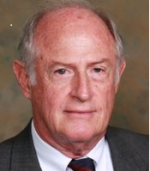 |
|
Joshua GoodbaumJoshua Goodbaum is a lawyer and partner at the law firm of Garrison, Levin-Epstein, Fitzgerald & Pirrotti here in New Haven. He represents individuals in litigation and negotiation, with particular emphases in employment, civil rights, and appeals. He has represented clients in every level of our justice system, from local trial courts to the Supreme Court of the United States, in matters ranging from constitutional law to contract disputes. Josh earned his law degree from Harvard Law School. While at Harvard, Josh served as a Supervising Editor of the Harvard Law Review and Co-Chair of the Public Interest Auction. Josh went to college at Yale University, graduating magna cum laude, Phi Beta Kappa, with a degree in history. Between college and law school, he worked for an industrial supply distribution company in Chicago, IL. Josh is a native of the New Haven area. In his spare time, he enjoys choral singing and playing tennis. You may reach him via email. |
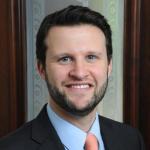 |
|
Jonathan GrauerAfter growing up in the New Haven area, I went to college at Tufts, medical school and orthopaedic residency at Yale, spine fellowship at Thomas Jefferson, and have been back on faculty in the Department of Orthopaedics and Rehabilitation at Yale School of Medicine since 2003. I have an active spine surgical practice, am involved with residents and medical students doing clinical research, and am engaged with department administration. I would be happy to meet with students to discuss related interests and career paths. You may reach him via email. |
|
|
Elliott B. JacobsonI am a recently retired career public prosecutor. After graduating from Yale (Saybrook) in 1977, I received my J.D. degree from Harvard Law School in 1980. Thereafter, I served as an Assistant District Attorney in Manhattan under Robert Morgenthau for five years, and then, for nearly thirty-two years, as an Assistant United States Attorney in the Southern District of New York under eleven successive United States Attorneys. I investigated and prosecuted thousands of cases — many of them high-profile matters — including cases involving public corruption, tax fraud, and multiple homicides. I tried approximately sixty cases to verdict and argued approximately two dozen appeals before the United States Court of Appeals for the Second Circuit. If you are interested in criminal law, trying cases, arguing appeals, and a career pursuing justice, I would be happy to speak with you. Please reach out via email if you are interested in this opportunity. |
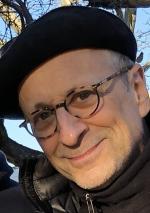 |
|
Helen JessupHelen Ibbitson Jessup is an independent scholar specializing in the art and architecture of Southeast Asia, particularly Cambodia and Indonesia. She has curated several exhibitions, including Sculpture of Angkor and Ancient Cambodia, Millennium of Glory for the National Gallery of Art in Washington, DC (1997), and Court Arts of Indonesia for the Asia Society and the Arthur M. Sackler Gallery, Smithsonian Institution (1990) and was the editor and author of the accompanying catalogues. In addition she wrote Art and Architecture of Cambodia for the World of Art series (2004), Masterpieces of the National Museum of Cambodia (2006), Temples of Cambodia, the Heart of Angkor (2012) and is currently writing Angkor and Beyond about the outlying temples of Cambodia. Australian-born Jessup’s BA is from Melbourne University; her MA and PhD are from the Courtauld Institute of Art, London University. She has taught at Georgetown University (Washington, DC), the Australian National University (Canberra) and Chulalongkorn University (Bangkok) and is currently an Associate Fellow of Saybrook College, Yale University. She has lectured in the United States, Britain, The Netherlands, Thailand, Indonesia, France and Australia. Jessup’s studies have also included Dutch colonial architecture and Australian art and literature. She is the founding President of Friends of Khmer Culture and also serves on the boards of The United States-Indonesia Society and the American Friends of the National Gallery of Australia. She can be reached via email. |
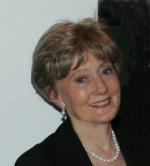 |
|
Gary KopfDr Kopf has been on the Medical School Faculty for 38 years as a professor of adult and pediatric cardiac surgery. He is a member of the Medical School admissions committee, as well as the hospital ethics committee. He attended Columbia College and Harvard Medical School, and trained in general and cardiac surgery in Boston at the Brigham and Women’s Hospital and the Boston Children’s Hospital. Dr Gary Kopf will be happy to advise students regarding pre-med studies, medical school applications, as well as any projects they may be interested in regarding bioethics. He is best reached via email. |
.jpg) |
|
Tassos C. KryiakidesTassos C. Kyriakides, born and raised on the island of Cyprus, completed his B.Sc. (Biochemistry) as a Fulbright Scholar at UCLA (1993) and continued to receive his Ph.D. at the Yale School of Public Health (Epidemiology of Infectious Disease; 1999). He has been with the Department of Veterans’ Affairs Cooperative Studies Program (VACSPCC-West Haven, CT) the last nineteen years as a Senior Biostatistician and has worked on pivotal clinical trials (The OPTIMA Trial, a multi-national HIV/AIDS treatment clinical trial; a surgical clinical trial (The OVER Trial); and a PTSD clinical trial (The VIP-STAR Trial). As of April 2015, he has been appointed Acting Deputy Director at VASCPCC-West Haven. In 2011 he joined the Yale Center for Analytical Sciences (Yale School of Public Health), where he collaborates with researchers on numerous clinical research projects. He is the President of the Association of Yale Alumni in Public Health (AYAPH) Board and a faculty fellow at Yale’s Saybrook College. He provides statistical consulting on numerous clinical research protocols, has been an abstract mentor for young researchers at the International AIDS Conferences since 2012, leads the VACSPCC internship program and is a statistical reviewer for high-impact medical journals (Lancet Infectious Diseases and the Lancet Gastroenterology & Hepatology). Even though his primary research focus is in infectious diseases, with emphasis on HIV/AIDS and its treatment, he has a keen interest in the history of medicine, and social determinants of health. His love for the examination of the socio-cultural dimension of the benefits of Greek/Mediterranean nutrition has inspired him to study, in great depth, through evidence-based research, its main pillar: olive oil. He is a certified Olive Oil Sommelier (International Culinary Center/Olive Oil Education Lab in NY City; 2017) and has given numerous olive oil presentations and tastings at various venues, ranging from health-focused gyms to academic settings. In addition, he is a past President and, currently, Board member of the Massaro Community Farm, Inc., an organic and sustainable 57-acre, 200 CSA member, farm in Woodbridge, CT. When not training for medium/long-distance races or triathlons, he enjoys long bike rides through the rolling hills of CT; he is inspired by and experiments with the fine art of cooking; he immerses, and sometimes loses himself, in the EVOO world. He is intrigued by interesting and complex, trendy as well as mainstream, wines. He is a strong believer in the holy triad: food, drink and dialogue! He is best reached via email. |
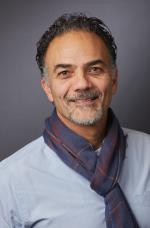 |
|
Marie-Louise LandryDr. Landry graduated from Georgetown University School of Medicine, received her internal medicine residency training at Yale New Haven Hospital, and completed fellowships in Infectious Diseases and Clinical Virology (Laboratory Medicine) at Yale University. She is board certified in Internal Medicine and Infectious Diseases but has focused her career on the field of diagnostic virology. Under Dr. G.D. Hsiung, she helped to establish the national Virology Reference Laboratory at VA Connecticut, and subsequently established the Clinical Virology Laboratory within the Department of Laboratory Medicine at Yale New Haven Hospital, one of the premier virology laboratories in the U.S. She has over 180 publications on diagnostic testing, and has been the Virology Volume Editor for the Manual of Clinical Microbiology from ASM Press for the past 4 editions. She serves as the main teacher of Medical Virology for Yale medical students, and also serves as the Director of Medical Studies and Vice Chair for Laboratory Medicine. Dr. Landry’s interests focus on the rapid detection and quantitation of viruses for clinical diagnosis and the impact of new test methods on patient management. If you are interested in contacting her she can be reached via email. |
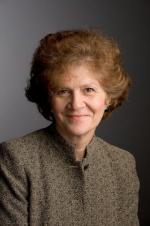 |
|
Janet LindnerAs Yale’s chief human resources officer, Ms. Lindner is an officer of the university and has overall responsibility for recruitment and staffing, talent development, diversity, organizational excellence, compensation, benefits, labor relations, employee relations, employee communications, HRIS, the employee service center and labor-management partnerships. Ms. Lindner is also responsible for a wide range of the university’s administrative operations including police, security operations and systems, emergency management, travel and transportation, housing, publishing and other essential service functions. Before her appointment as vice president, Ms. Lindner served in many key roles at Yale, including deputy vice president immediately prior to her current appointment. During Yale’s 2012 presidential search, she served as staff liaison to the Yale Corporation presidential search committee. Previous assignments have included start-up operations at the West Campus; responsibility for administrative and business areas within the Finance & Administration division, including university procurement and the data warehouse; start-up and management of the university’s cooperative labor-management partnership; and, within the Secretary’s Office, director of the university’s Tercentennial celebration. Prior to joining Yale, she was chief administrative officer for the City of New Haven, responsible for the city’s operations including police, fire, emergency management, parks, facilities, public works, human resources, procurement, and the libraries. Before coming to New Haven, she worked in the mayor’s office in the City of New York, as deputy director of citywide labor-management programs and later as assistant director of operations. She holds a B.S. in industrial and labor relations from Cornell University, an M.P.A. from Baruch College, CUNY, and a doctorate in higher education from the University of Pennsylvania. Janet has taught as an adjunct instructor at the undergraduate and graduate level on topics such as managing people in higher education, public administration and government, and finance and budgeting for non-profit managers. She currently serves as chair of the board of United Way of Greater New Haven, and has served as a board member and officer of The Mory’s Association. She is best reached via email. |
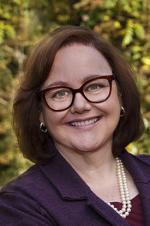 |
|
Molly MeyerI retired from Yale Jan 1, 2017 after working for 45 years as an adult Nurse Practitioner at Yale Health. I am considered to be active retired since I continue to work per diem seeing students in Student Health/Athletic Medicine.I worked in Athletic Medicine (non orthopedic) and Student Health as a Nurse Practitioner and I was also the Nurse Practitioner (APRN) for the oncology practice (for students, staff, faculty) for more than 30 years when it was based at Yale Health (moved to Smilow in 2013). I also had a small practice in Internal Medicine (faculty and staff)for 40 years. I was an assistant clinical professor at the Yale School of Nursing and served as a preceptor for many nursing students over the years. I was a freshmen advisor for Saybrook for a couple of years and was on the Board of Directors at Dwight Hall for 10 years. I have a BA in History from Skidmore and a BS in Nursing from U. Wisconsin-Madison. I got my master’s from Southern. I would be happy to talk with anyone interested in advanced practice nursing. It has been and continues to be a wonderful career. She is available via email. |
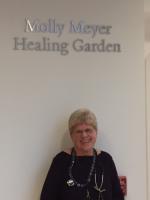 |
|
Keely OrgemanKeely Orgeman is a curator of American paintings and sculpture at the Yale University Art Gallery. She began pursuing her chosen career as an undergraduate student at the University of Wisconsin in Madison, where she worked as a curatorial assistant at the university-affiliated art gallery Tandem Press. During her graduate studies in art history at Boston University, she curated the exhibition Atomic Afterimage: Cold War Imagery in Contemporary Art (2008), which related to her dissertation on artists’ representations of radioactivity. Since arriving at Yale in 2008, she has held several positions at the museum, including curatorial fellow (2008–2011), assistant curator (2011–2016), and associate curator (2016–present), and organized the traveling exhibition Lumia: Thomas Wilfred and the Art of Light (2017) for YUAG and for the Smithsonian American Art Museum, in Washington, D.C. Her new project focuses on a portrait miniature depicting a woman of color from the early nineteenth century. Keely would happily discuss careers in the museum field or talk about art more generally with anyone who is interested. Please contact her via email. |
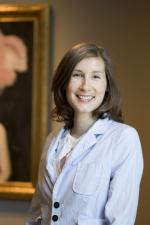 |
|
Rhea Paul Ph.D. CCC-SLPRhea Paul, Ph.D., CCC-SLP is a retired Professor from the Yale Child Study Center, and is currently Professor and Chair of Speech-Language Pathology at Sacred Heart University. She is author of over 100 refereed journal articles, over 50 book chapters, and 9 books. Dr. Paul has served as Principal Investigator on grants from the National Institutes of Health, the American Speech-Language-Hearing Foundation, Autism Speaks, and the Meyer Memorial Trust. She was President of the Connecticut Speech-Language Hearing Association (CSHA) from 2010-14. Winner of the National 1996 Editor’s Award of the American Journal of Speech-Language Pathology and the Slifka Foundation Award for Clinical Research from the International Society for Autism Research in 2010, she received Honors of the Association in 2014 from the American Speech, Language, and Hearing Association. She was also awarded a Faculty Scholarship Award for her book, Let’s Talk: Navigating Social Communication Supports for Your Young Child with Autism., and hosts the Let’s Talk podcast for parents of children with disabilities. Dr. Paul lives in Milford, where her three children grew up. There she participates in the Eastbound Community Theater, volunteered with Big Sisters, and takes dance classes. She also enjoys practicing piano, hiking, studying French, and entertaining her granddaughter. Contact her via email. |
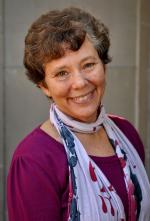 |
|
Eric PetersonEric is a proud Saybrugian, and checks regularly to see that his name is still on the wall to the right of the entry into the Common Room, with the rest of the Mary Casner Prize recipients. Eric was a member of the Saybrook College Council and SAC for all four years, and served as SAC chair for two years. He also ran the Squiche and the Underbook Press (we had a printing press under O entryway before 2001 renovation), and represented Saybrook on the YCC for three years. Eric was a double-major in Biology and International Studies. He also holds an MA in Urban Studies from CUNY/Queens College, and is in formation to become a Deacon for the Roman Catholic Diocese of Brooklyn. Since Yale, Eric has worked at the New York City Department of Parks & Recreation. He began in Marketing & Special Events (essentially SAC chair and Dramat producer for the City), and has worked in Special Events and Permits, Operations, and Capital Projects. He is currently the Rockaway Administrator, overseeing seven miles of ocean beach - including NYC’s only official surf beaches - two dozen playgrounds, and three hundred acres of natural areas with several endangered species under protection. Eric is also Yale’s Alumni Schools Committee director for Brooklyn, and is a collaborator in Feb Club Emeritus. He can be reached via email. |
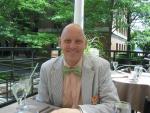 |
|
Jennifer Reynolds-KayeJennifer Reynolds-Kaye is the Curator of Education and Academic Outreach at the Yale Center for British Art. In this role, she develops creative and interdisciplinary approaches for engaging Yale faculty and students with the Center’s collections. Her latest research investigates the connections between pre-Columbian art and Britain in the 19th and 20th centuries, with a specific focus on plaster casts of pre-Columbian objects. She also curated the exhibition, “Small-Great Objects: Anni and Josef Albers in the Americas” (February 3-June 18, 2017) at the Yale University Art Gallery. She received her PhD in Art History from the University of Southern California, and specializes in the afterlife of pre-Columbian art in modern and contemporary art. She can be reached via email. |
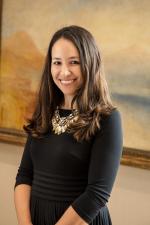 |
|
Stephen StearnsA 1967 graduate of Yale College, Stephen C. Stearns earned a M.S. from the University of Wisconsin and a Ph.D. from the University of British Columbia. After a Miller Fellowship at Berkeley, he taught at Reed College in Portland, Oregon before moving to Basel, Switzerland, in 1983, where he was Professor of Zoology, Director of the Zoology Institute, and Dean of the Faculty of Science. He founded and served as president of the European Society for Evolutionary Biology, the Tropical Biology Association, and the International Society for Evolution, Medicine, and Public Health and was founding editor of both the Journal of Evolutionary Biology and Evolution, Medicine, and Public Health. He has been a vice president of the Society for the Study of Evolution and is a fellow of the American Association for the Advancement of Science. At Yale since 2000, where he is Edward P. Bass Professor of Ecology and Evolutionary Biology, he currently teaches courses in Evolution and Medicine and Life History Evolution. His books include The Evolution of Life Histories (1992, OUP),Evolution: An Introduction (with Rolf Hoekstra, 2008, OUP), Watching, from the Edge of Extinction (with Beverly Stearns, 1999, Yale), and Evolutionary Medicine (with Ruslan Medzhitov, 2015, Sinauer). You may reach him via email. |
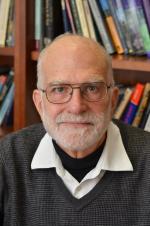 |
|
R. Lee StumpR. Lee Stump is the Director, Franchise Engagement and Implementation at Ameriprise Financial Services, Inc., a Fortune 250 firm, overseeing the retail financial franchise operations for their Mid-Atlantic Region, which spans Connecticut to North Carolina. Lee is a former journeyman professional and still avid cyclist; an active, competitive one design dinghy sailor, winning numerous local, district, and regional championships including three-time finalist at the U.S. Sailing Men’s National Championships, winning U.S. Sailing’s Stanton J. Peele Sportsmanship Award in 2001; and he is an avid skier. Lee earned his B.A. in Psychology and American Studies from the University of Hawaii and attended graduate programs in finance and development at both American University and Johns Hopkins. An Associate Fellow at Yale’s Saybrook College, he supports numerous civic and non-profit groups volunteering for and having served as a member and/or officer on a variety of boards and committees from the Yale School of Drama to the Cystic Fibrosis Foundation to Artspace. Lee lives in downtown New Haven with his wife Abigail (Abby) Roth ’90 LAW ‘94, City of New Haven Alder for Ward 7. He is best reached via email. |
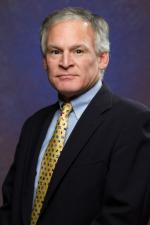 |
|
Jakub SzeferJakub Szefer’s research interests are at the intersection of computer architecture and hardware security. Jakub’s recent projects focus on: security verification of processor architectures; hardware (FPGA) implementation of cryptographic algorithms, especially post-quantum cryptographic (PQC) algorithms; designs of new Physically Unclonable Functions (PUFs); and leveraging physical properties of computer hardware for new cryptographic and security applications. Jakub’s research is currently supported through National Science Foundation and industry donations. Jakub is a recipient of a 2017 NSF CAREER award. He joined Yale University in summer 2013 as an Assistant Professor of Electrical Engineering, where he started the Computer Architecture and Security Laboratory (CAS Lab). Prior to joining Yale, he received Ph.D. and M.A. degrees in Electrical Engineering from Princeton University and worked with Prof. Ruby B. Lee on secure processor architectures. He received B.S. with highest honors in Electrical and Computer Engineering from University of Illinois at Urbana-Champaign. He can be reached via email. |
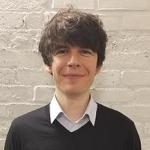 |
|
Peter Tattersall, PhDPeter Tattersall, PhD, is a Professor in the Department of Laboratory Medicine, with a joint appointment in the Department of Genetics, at Yale University School of Medicine. He has spent his entire caareer studying many aspects of the replication of mammalian parvoviruses, which are amongst the smallest known viruses in the biosphere. His research group has used a combination of genetics and immunochemistry, supported by collaborations with structural biology and immunobiology groups, to delineate the mechanisms by which these tiny, single-stranded DNA-containing viruses invade target cells, enveigle the host cell to express the viral genes, replicate their unique, linear viral DNA genome, assemble viral capsids, then package and export progeny virions. This work has provided much of the current text book copy on the biology of the autonomously replicating parvoviruses. Dr. Tattersall received his Bachelor’s Degree in Molecular Biology from the University of Glasgow in Scotland, in 1968, and his doctorate in Molecular Virology from University College, London, in 1971, for work performed at the Imperial Cancer Research Fund (now Cancer UK). He is best reacherd via email. |
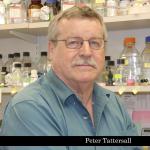 |
|
I have been on the Medical School Faculty for 38 years as a professor of adult and pediatric cardiac surgery. I am a member of the Medical School admissions committee, as well as the hospital ethics committee. I attended Columbia College and Harvard Medical School, and trained in general and cardiac surgery in Boston at the Brigham and Women’s Hospital and the Boston Children’s Hospital.
I will be happy to advise students regarding pre-med studies, medical school applications, as well as any projects they may be interested in regarding bioethics.

